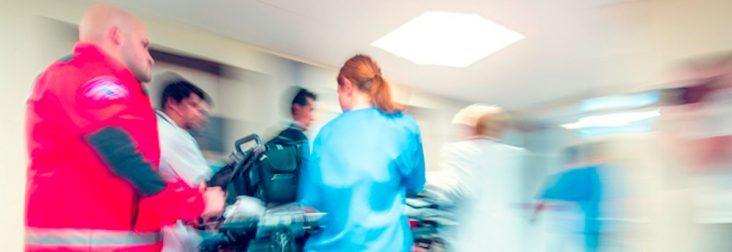Arkansas Children’s CEO says 50 states of health care ‘challenging’
by October 29, 2017 9:47 am 782 views

Arkansas Children’s CEO Marcy Doderer remains hopeful that a federal fix to health care will be achieved. She’s also encouraged by a new state study to baseline Arkansas’ insurance market.
Appearing on this week’s edition of Talk Business & Politics, Doderer said that federal health care reform is extremely complicated and not simple to improve.
“The healthcare debate is one of the most complex things that our elected officials and Washington, D.C. can tackle. Parts of the Affordable Care Act are not working and we’ve got to try to get to those, the insurance markets and trying to understand how we fix it. What we, in healthcare, don’t want to see happen is just a complete erasing of the progress we’ve made in recent years for coverage and benefits for folks,” she said, noting that the Alexander-Murray health care legislation is a step in the right direction.
When asked if she opposed a strictly state-centered approach to health care – ’50 states of health care’ as some have described it – Doderer cautioned.
“It’s challenging for a regional player like Arkansas Children’s,” Doderer said. “We are the only children’s health system in the state of Arkansas and the bulk of our kids are Arkansans, but not all of our kids are Arkansans. Everyday, we take care of kids from Missouri, Oklahoma, Texas, Louisiana, and Tennessee. They come across the borders and if all of those children were covered with a variety of health plans there were uniquely designed by their individual states, it will make it really challenging for a provider like Arkansas Children’s to understand how do you bill and collect with that many different health insurance plans.”
The children’s hospital CEO is supportive of a new initiative in Arkansas announced two weeks ago to baseline the health insurance market.
“I think the study is actually a really good one for our state. It’s been awhile, it’s time for us to take stock again of how we administer Medicaid, how our kids work, what’s really going to happen with the PASSEs [Provider-led Arkansas Shared Savings Entity], the new way of care coordination and payment for our vulnerable patients on Medicaid who are behavioral health or developmentally disabled patients. So, having a dedicated moment in time where we can stop and take stock and understand who’s covered, what’s covered, why are they covered is a really good thing for our state to do,” she said.
Doderer also wants to erase the stigma of Medicaid as only beneficial to poor people who can’t afford insurance. She says there is another universe of recipients with complex medical situations, and she knows first hand that the program is necessary to save young lives.
“Children who are born with significant medical complexities, things that will require them to be really heavy users of the health care system, most often their private insurance company or their private insurance policy, will not begin to touch what’s needed to take care of them,” she said.
“My daughter, Katie, 19 years old, was born with a really rare syndrome, there’s fewer than 2,000 kids in the world with what she has. She required 24 hour nursing care, she is mechanically, dependent on a mechanical ventilator, she has a cardiac pacemaker. I could go on and on. She was a heavy user of healthcare, particularly early on, topped the million dollar mark in her first year of life, and though we are educated, insured, and employed, what we needed to take care of her, so that she could be a 19 year old, she would never have happened without support from Medicaid in Texas and then again in Arkansas when we moved here,” Doderer said. “I use that story just to help educate that we should never try to put a single face on a program like Medicaid. It’s not just a poor, minority patient from rural Arkansas. It could be a child like Katie who has a mom like me.”
For the record, Doderer’s daughter is a sophomore in college working on health care cures for children with conditions like hers.
Watch Doderer’s full interview in the video below.
